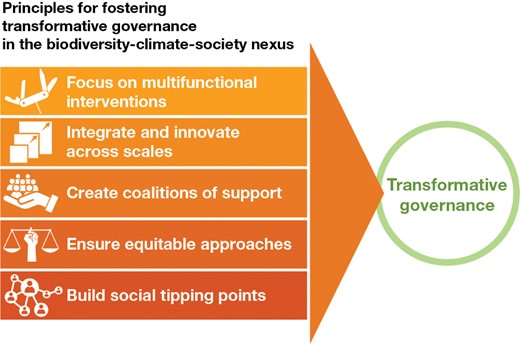July 01, 2022 | Bioscience | Source |
Introduction: Transformative governance is crucial to addressing the global environmental crisis. An global research consortium led by the University of Bern in Switzerland explores how to achieve transformative governance for the interconnected biodiversity–climate–society (BCS) nexus, using insights from the first joint report by the Intergovernmental Panel on Climate Change (IPCC) and the Intergovernmental Science-Policy Platform on Biodiversity and Ecosystem Services (IPBES).
Key findings: The consortium identifies key principles from four case studies—forest ecosystems, marine ecosystems, urban environments, and the Arctic—focusing on multifunctional interventions, cross-scale integration and innovation, coalition building, equitable approaches, and fostering positive social tipping points. Implementing these principles can help keep climate change within a 1.5°C increase, halt biodiversity decline, and enhance human well-being. Effective governance requires adaptive solutions that recognize complex feedback loops and trade-offs, rather than single, simplified approaches. Ensuring local autonomy and equitable participation, addressing power imbalances, and integrating socioeconomic benefits are essential. Ultimately, combining short-term policy measures with deeper institutional changes can create the conditions needed for transformative governance to succeed in tackling the climate and biodiversity crises.





